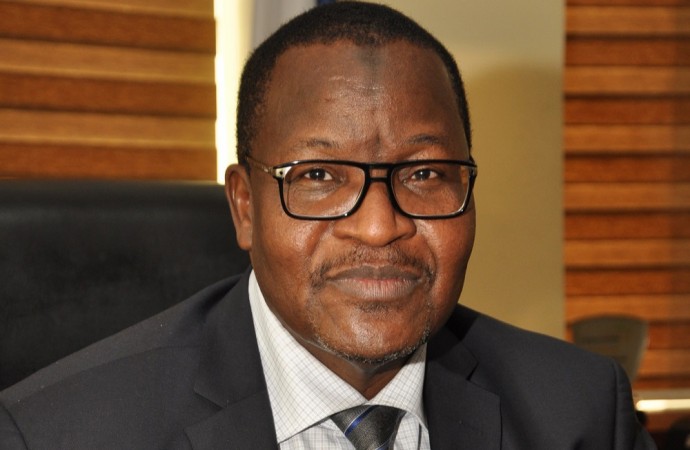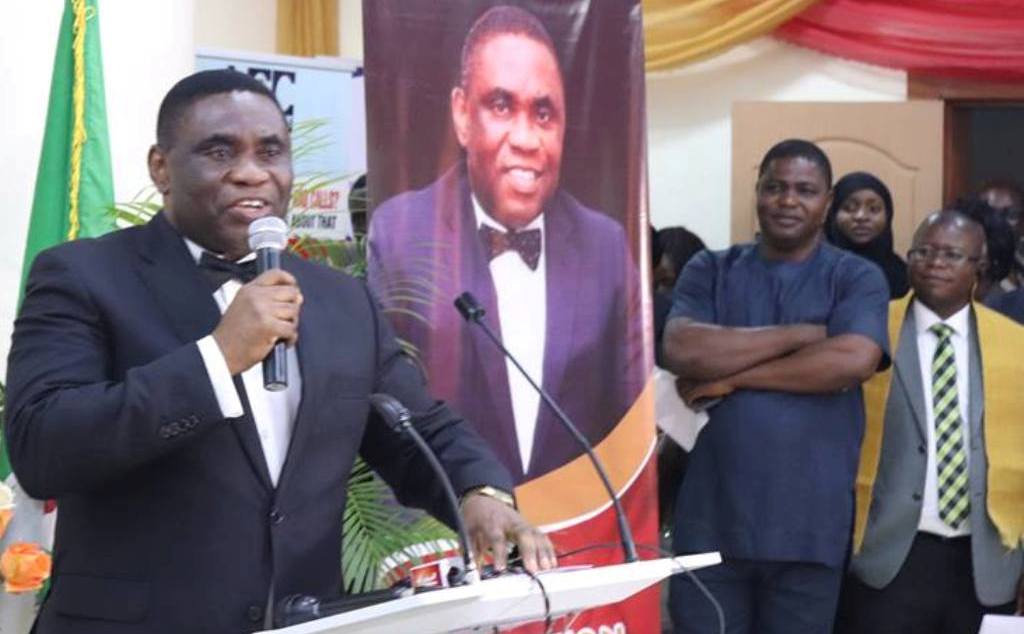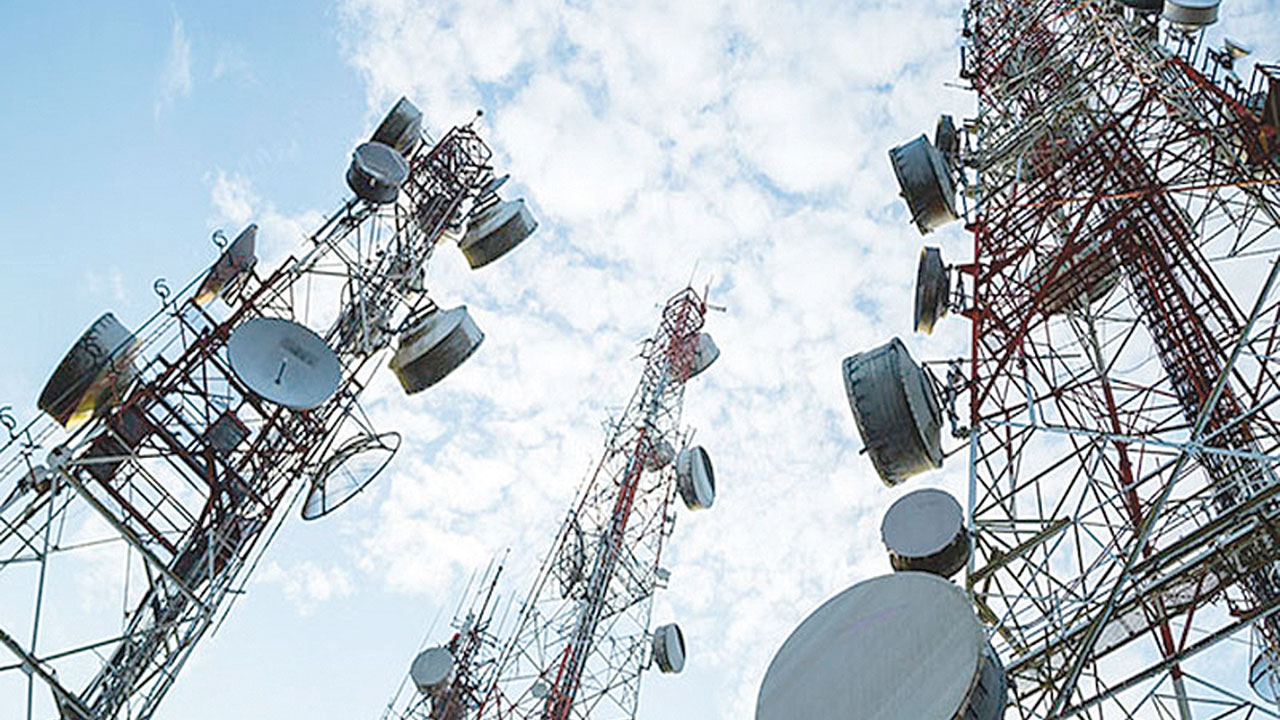The Executive Vice Chairman of the Nigerians Communications Commission, NCC, Prof. Umar Danbatta, says the Commission will dedicate 2018 as a year for Improve Quality of Service.
Prof. Danbatta dropped the hint while declaring open the USPF, GSMA Operators, and Stakeholders Universal Access Roundtable held on Monday in Abuja.
He said the decision was reached after recording a successful outing in 2017, which is dedicated to ‘The Consumer’.
To achieve this, he said the Commission had put measures in place to address the infrastructure deficit in the system, provide more spectrum and address the challenge of Right of Way (RoW).
‘‘NCC intends to declare 2018 as the year we hope to improve quality of service. After the success we have recorded by dedicating 2017 to the Consumer, we are poised to declare 2018 for improved quality of service in the country.
‘‘We cannot do this without addressing deficit in infrastructure, without providing more spectrum, without talking about RoW and without containing the challenge of the use of unregistered Sim cards that are now in circulation which is bringing additional burden on the networks.
‘‘There are a whole lots of issues we hope the campaign can achieve in the same way and manner dedicating 2017 as a year of Consumer has achieved result.
‘‘In 2018, we will see quality of service improve and we are coming out with programmes that will be geared towards improving Quality of service in the year to come.’’
The round table, the first of its kind, was aimed at strengthening the synergy between Universal Service Provision Fund (USPF) and operators in the Nigerian telecommunications industry.
It was also aimed to facilitate attainment of the objectives of the Universal Access System in Nigeria, which are to promote greater social equity and inclusion for the people of Nigeria and contribute to national economic, social and cultural development of Nigeria.
The EVC said past efforts by the Commission to overcome the challenges of access and inclusion in universal access had witnessed some results but a lot in the rural areas is still left unattained to.
Danbatta, who lamented about scarcity of funding in service provision said there were a lot of access gaps in the country mainly in the rural areas, the unserved as well as underserved areas.
‘‘So far, we have managed to reduce the number from 207 to 97 and we have clusters of these gaps, we know where they are. But the funding needed to bridge these gaps is becoming a huge challenge, not to NCC alone but to operators.
‘‘It therefore requires all sectors, government and stakeholders, while NCC should provide the interventions. The operators should also join so that we have a holistic approach in place to really get rid of this access gaps.
‘‘We have close to 40 million Nigerians that have no access to telecommunication access because of these gaps.
‘‘Meeting Governors and prevailing on them to relax the legislations on Right of Way is very important but equally, funding is needed to ensure within the shortest possible time, that access gaps are addressed.
‘‘Without doing this, the very essence of establishing USPF will be defeated because, it says ensuring equitable ICT services to all corners of the country as well as ensuring inclusion in the provision of services,’’ he added.
The EVC emphasised collocation for operators, said the adoption makes economic sense for operators to save cost and improve quality of service.
‘‘I think the regulatory framework must be very clear. There should be collocation. The whole idea is to ensure operators collocate in shared services and therefore spend less than spending huge sum of money to provide services.
‘‘It makes a lot of economic sense to collocate, it does not make any sense for operators to resist collocation because it was in the first place in order to make life better for them improve infrastructure and improve quality of service.’’
To increase the current active mobile broadband subscription in the country, he said the commission had set a new target per 100 from 20.95 to 50 percent in 2020, which is similar to the 30% for Nigerians National Broadband Plan (2013-2018) vision for Nigeria.
In his own address, Senior Director, Policy Engagement, Government and Regulatory Affairs at GSMA, Fraser Graham, said the roundtable was a product of long discussions with the NCC’s management and some members of the organization.
He said there is no one solution to addressing access gap but requires critical look into the demand and supply side of the coin through digital training and awareness, especially in the developing countries.
‘‘We have discussed with the EVC last year and some of our members about the operation of the USPF, how it was working and some suggestion on how it can be improved.
‘‘We decided that the best way will be for the whole of the stakeholders to be in the same room discuss positions and see how we can improve the universal access coverage.
‘‘There is no one solution to the challenges, but GSMS research has identified scenarios that can be looked at. You need to look at the supply side, how can we improve technology, how can we can improve services and make them more efficient.
‘‘On the demand side, focus should be how can we increase demand services, digital literacy and training children at early age, top be able to use digital technology and smart phones and increase demand for e-Government services as well as digital illiteracy. Develop local content in local language and in ways that are relevant to them and viable for commercial operators.’’
In his remarks, a former President of ATCON, Engr. Lanre Ajayi said the roundtable was important and was coming at the right time.
He said the operators before now never care about collaboration with the USPF but with this roundtable, the collaboration was going to make huge impact in bridging access gaps.
‘‘That will certainly excite them a bout the activities of USPF, and I think it is a good development and going to make a big impact in the operation of the operators and USPF.’’
Stakeholders present at the roundtable include: representatives of MTN, Airtel, 9Mobile and Main One Cable among others.




